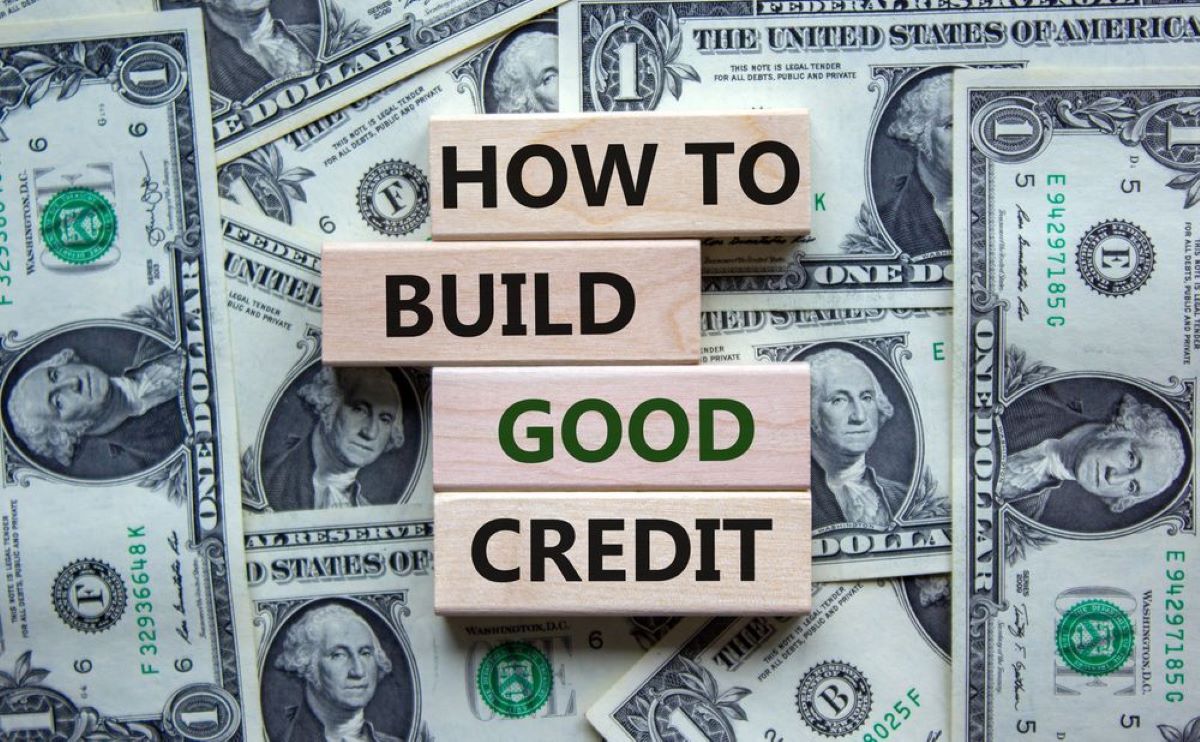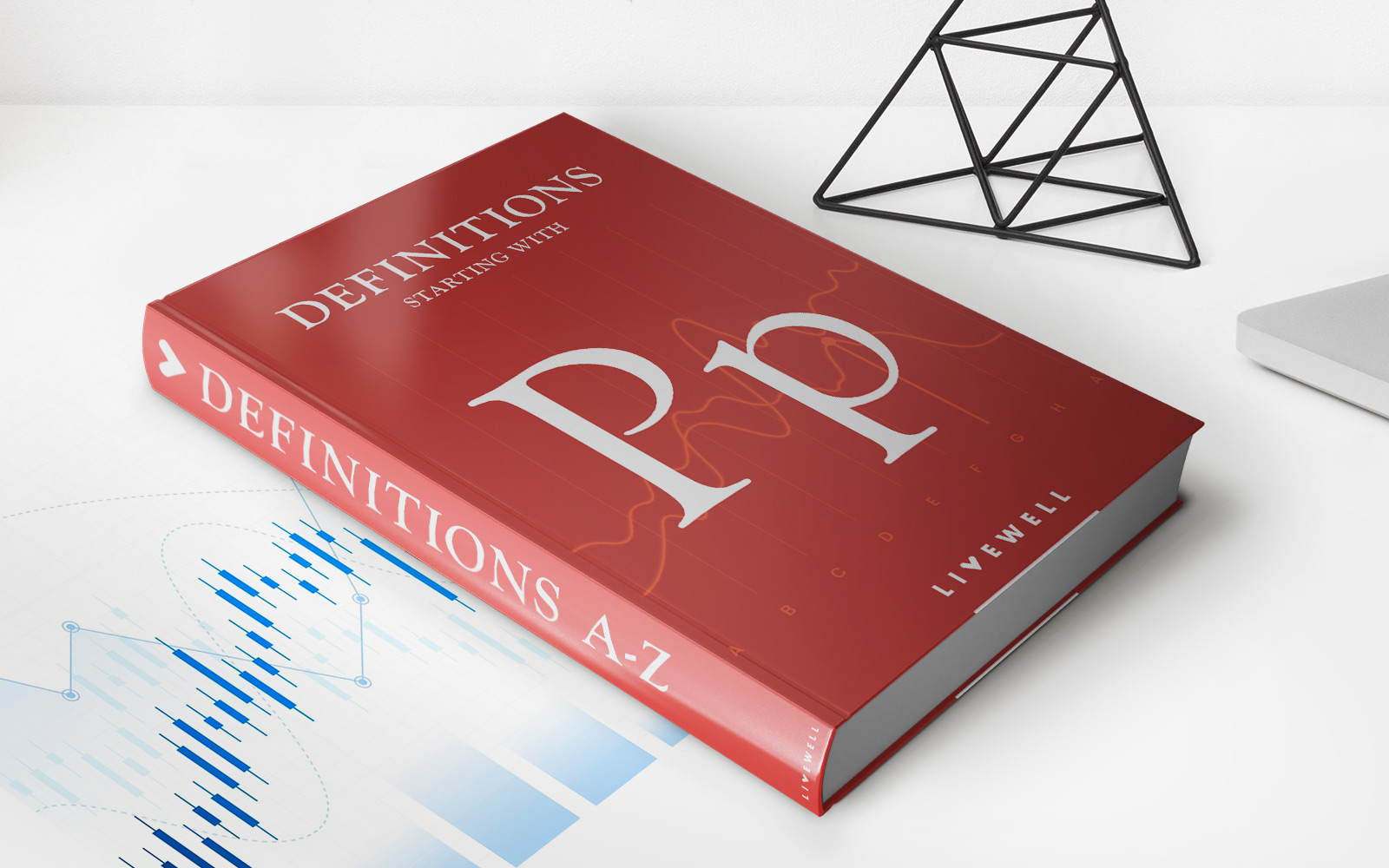

Finance
How To Build Credit At 19 Years Old
Modified: February 21, 2024
Looking to build credit at 19 years old? Discover expert tips on managing your personal finance to establish a strong credit foundation for the future.
(Many of the links in this article redirect to a specific reviewed product. Your purchase of these products through affiliate links helps to generate commission for LiveWell, at no extra cost. Learn more)
Table of Contents
- Introduction
- Understanding Credit
- Importance of Building Credit at a Young Age
- Assessing Your Current Credit Situation
- Creating a Budget and Managing Your Finances
- Opening a Bank Account
- Applying for a Secured Credit Card
- Using Credit Responsibly
- Making Regular Payments
- Building a Positive Credit History
- Seeking Guidance and Advice from Professionals
- Conclusion
Introduction
When you’re 19 years old, building credit may be the last thing on your mind. However, establishing a solid credit history early on can have a significant impact on your financial future. Building credit at a young age not only helps you qualify for loans and credit cards in the future, but it also demonstrates financial responsibility and opens up opportunities for better interest rates and favorable terms.
Before we dive into the specifics of how to build credit at 19 years old, let’s first understand what credit is and why it’s important. Credit is a measure of your ability to borrow money and repay it over time. It is represented by a credit score, a three-digit number that lenders use to assess your creditworthiness. Your credit score is influenced by factors such as your payment history, credit utilization, length of credit history, and types of credit accounts you have.
Building credit at a young age can be a bit challenging, as you might have limited credit experience or income. However, with the right strategies and disciplined financial habits, you can successfully start building a positive credit history. This guide will provide you with practical tips and insights on how to establish credit and set yourself up for a strong financial foundation as you navigate adulthood.
Understanding Credit
Before you can effectively build credit, it’s important to have a clear understanding of what credit actually is. In its simplest form, credit is the ability to borrow money or access goods and services with the understanding that you will repay the borrowed amount, usually with interest, over a specified period of time.
Credit is typically provided by financial institutions such as banks, credit unions, and credit card companies. When you borrow money or use credit, your financial activity is tracked by credit bureaus, such as Equifax, Experian, and TransUnion. They compile this information and generate a credit report, which includes details about your credit history, current debts, and payment patterns.
Your creditworthiness is measured by a credit score, which is a numerical representation of your credit report. The most commonly used credit scoring model is the FICO score, which ranges from 300 to 850. The higher your credit score, the better your creditworthiness and the more favorable loan terms you may qualify for.
Some key factors that influence your credit score include:
- Payment History: Your track record of making on-time payments and any history of late or missed payments.
- Credit Utilization: The amount of credit you’re using compared to your total available credit. It’s recommended to keep your credit utilization below 30%.
- Length of Credit History: The age of your credit accounts and the length of time since your first credit account was opened.
- Credit Mix: The types of credit accounts you have, such as credit cards, loans, and mortgages.
- New Credit: The frequency and timing of new credit applications and accounts opened.
Understanding how your credit score is calculated and what factors contribute to it is crucial as you embark on your journey to build credit at 19 years old. By knowing what lenders look for, you can make informed decisions and take steps to improve your creditworthiness.
Importance of Building Credit at a Young Age
Building credit at a young age may not seem like a priority, but it can have long-lasting benefits for your financial future. Here are some key reasons why it’s important to start building credit as early as possible:
- Qualify for Loans and Credit Cards: As you progress in life, you may need to borrow money for significant purchases such as a car, a home, or even to finance your education. Having a good credit history can make it easier to qualify for loans and credit cards, as lenders see you as less of a risk and more likely to repay your debts responsibly.
- Establish Financial Responsibility: Building credit at a young age allows you to demonstrate financial responsibility. When lenders see that you have a positive credit history and have managed your debts well, they are more likely to trust you with larger amounts of credit in the future.
- Access to Better Interest Rates and Terms: With a good credit score, you have a higher chance of securing loans and credit cards with more favorable interest rates and terms. This can save you a significant amount of money over time, as lower interest rates mean lower monthly payments and less interest paid over the life of the loan.
- Build a Solid Credit Foundation: Building credit early sets the stage for a solid credit foundation. This means that as you progress in your financial journey, your credit history will reflect responsible borrowing and repayment habits, increasing your overall creditworthiness.
- Prepare for Future Opportunities: Building credit at a young age opens up opportunities for other financial milestones, such as renting an apartment, obtaining insurance, or starting your own business. Landlords, insurance companies, and even potential business partners may consider your credit history before entering into a contract or agreement with you.
By understanding the importance of building credit at a young age, you can take the necessary steps to establish a positive credit history. This will position you for financial success and grant you access to more opportunities as you navigate through adulthood.
Assessing Your Current Credit Situation
Before you start building credit at 19 years old, it’s important to assess your current credit situation. Even if you haven’t had any credit accounts or loans yet, you may still have a credit score or a credit report. Here’s what you need to do:
1. Check Your Credit Report: You can request a free copy of your credit report from each of the three major credit bureaus – Equifax, Experian, and TransUnion. Review the report carefully for any errors, such as accounts that don’t belong to you or incorrect late payments. Dispute any inaccurate information you find to ensure that your credit report is an accurate representation of your financial history.
2. Understand Your Credit Score: If you have borrowed money or used credit before, you may have a credit score. The FICO score is the most commonly used credit scoring model. If you don’t have a credit score yet, that’s normal for someone starting their credit journey. However, it’s still important to know where you stand.
3. Determine Any Existing Credit Accounts: Take stock of any existing credit accounts you may have, such as a student loan or a car loan co-signed by a parent or guardian. These accounts contribute to your credit history, even if you’re not the primary borrower. Understanding your current credit accounts will give you a starting point for building credit.
4. Calculate Your Debt-to-Income Ratio: Assess your current income and outstanding debts to calculate your debt-to-income ratio. This ratio compares your total monthly debt payments to your monthly income. Lenders use this ratio to evaluate your ability to handle additional debt responsibly. Aim to keep your debt-to-income ratio below 43%, as a higher ratio may indicate financial strain.
By taking the time to assess your current credit situation, you can gain insights into your credit history and understand where you stand. This knowledge will help you determine the best strategies and steps to take as you begin building credit at 19 years old.
Creating a Budget and Managing Your Finances
One of the most important steps in building credit at 19 years old is learning to create a budget and manage your finances effectively. A budget is a financial plan that outlines your income, expenses, and savings goals. Here’s how you can get started:
1. Track Your Income and Expenses: Begin by documenting your sources of income, such as part-time job earnings, allowances, or any other money you receive regularly. Then, track your expenses by categorizing them into fixed expenses (e.g., rent, utilities) and variable expenses (e.g., entertainment, dining out). This will give you a clear picture of where your money is going.
2. Set Financial Goals: Determine your short-term and long-term financial goals, such as saving for emergencies, paying off debt, or saving for major purchases. These goals will help guide your budgeting decisions and motivate you to stick to your financial plan.
3. Differentiate Between Needs and Wants: Differentiate between essential needs and discretionary wants. Focus on covering your needs first, such as food, shelter, and transportation, before allocating funds for wants like entertainment or luxury items.
4. Allocate Money for Savings and Debt Repayment: Set aside a portion of your income for savings and debt repayment. Establishing an emergency fund can help you cover unexpected expenses and avoid relying on credit in times of financial strain. If you have existing debts, prioritize making regular payments to reduce your debt load and improve your creditworthiness.
5. Track and Adjust your Budget: Regularly monitor your budget and track your expenses to ensure you’re staying on track. Adjust your budget as needed to accommodate any changes in income or expenses. Make sure to review your budget periodically and make adjustments to reflect your changing financial situation.
By creating a budget and managing your finances effectively, you are developing good financial habits that will not only help you build credit but also set you up for long-term financial success. This will demonstrate to lenders that you are responsible and capable of managing your money wisely, improving your chances of obtaining credit in the future.
Opening a Bank Account
As you embark on your journey to build credit at 19 years old, one crucial step is to open a bank account. Opening a bank account not only provides a secure place to keep your money but also offers several benefits that can assist you in building credit. Here’s what you need to know:
1. Choose the Right Account: When opening a bank account, choose an account that aligns with your financial needs and goals. Look for accounts that offer low or no fees, convenient access to ATMs, and online banking capabilities. Consider options such as a basic savings account, a checking account, or a combination of both.
2. Provide the Necessary Documentation: Be prepared to provide personal identification documents, such as a driver’s license or passport, to open a bank account. You may also need to provide proof of address, such as a utility bill or lease agreement. Each bank may have specific requirements, so it’s advisable to check with them beforehand.
3. Start with a Small Deposit: Some banks may require an initial deposit to open an account. Start with a small deposit that you can comfortably afford. As you continue to build your credit and manage your finances, you can gradually increase your savings and deposits.
4. Explore Account Features: Once you open a bank account, explore the different features available. Take advantage of mobile banking apps, electronic fund transfers, and online bill payment options. These features can help you manage your money more effectively and make timely payments, which positively impacts your credit history.
5. Build a Relationship with the Bank: Building a positive relationship with your bank can be beneficial in the long run. Engage with the bank by asking questions, seeking advice, and being proactive about managing your finances. Over time, this relationship may give you access to additional banking services and opportunities such as credit cards or loans from the same institution.
Opening a bank account provides a strong foundation for your financial journey and is a crucial step in building credit at 19 years old. It not only enables you to manage your money more efficiently but also establishes a relationship with a financial institution that can support your credit-building efforts in the future.
Applying for a Secured Credit Card
Applying for a secured credit card is a great way to start building credit at 19 years old if you have limited or no credit history. A secured credit card requires a cash deposit that serves as collateral, which reduces the risk for the lender. Here’s what you need to know about applying for a secured credit card:
1. Research Different Secured Credit Card Options: Take the time to research and compare different secured credit card offers from various financial institutions. Look for cards with low fees, reasonable interest rates, and positive reviews from other cardholders.
2. Determine the Required Security Deposit: Each secured credit card will have different requirements for the initial security deposit. The deposit amount typically serves as your credit limit. Consider your budget and choose a card with a deposit requirement that you can comfortably afford.
3. Complete the Application: Fill out the application for the secured credit card accurately and honestly. You’ll need to provide your personal information, employment details, and financial information such as income and monthly expenses. Some applications may also require a copy of your identification documents.
4. Submit your Security Deposit: Once your application is approved, you’ll need to submit your security deposit to the card issuer. This deposit acts as a guarantee for the lender in case you default on your payments. It’s important to note that you won’t have access to this deposit until you close the secured credit card account.
5. Use the Card Responsibly: Once you receive your secured credit card, use it responsibly to build your credit history. Make small purchases that you can easily repay and always pay your bill on time. Responsible credit card use demonstrates your ability to manage credit and improves your creditworthiness over time.
6. Gradually Transition to an Unsecured Card: After using a secured credit card responsibly for a period of time, you may be eligible to transition to an unsecured credit card. This allows you to reclaim your security deposit and obtain a card without collateral. Make sure to inquire with your card issuer about their policies regarding transitioning to an unsecured card.
Applying for a secured credit card is an excellent way to establish and build credit at 19 years old. By using the card responsibly and making timely payments, you can demonstrate your creditworthiness and pave the way for future credit opportunities.
Using Credit Responsibly
Using credit responsibly is crucial to building a strong credit history and maintaining financial stability. Here are some essential tips for using credit responsibly as you work on building credit at 19 years old:
1. Don’t Max Out Your Credit Limit: It’s important to keep your credit utilization ratio (the amount of credit you’re using compared to your total credit limit) below 30%. Maxing out your credit limit can negatively impact your credit score and indicate a higher risk to lenders. Aim to use credit sparingly and responsibly.
2. Pay Your Bills on Time: Making timely payments is one of the most critical factors influencing your credit score. Late or missed payments can severely damage your credit. Set up reminders or automatic payments to ensure that you pay your bills on time each month.
3. Pay More Than the Minimum Due: If you carry a balance on your credit card, try to pay more than the minimum amount due. By paying off your balance in full each month or paying more than the minimum, you can avoid accruing high-interest charges and reduce your debt more quickly.
4. Keep Old Credit Accounts Open: The length of your credit history is an important factor in your credit score, so it’s best to keep old credit accounts open, even if you’re not actively using them. Closing accounts can shorten your credit history and potentially lower your credit score.
5. Avoid Excessive Credit Applications: Limit applying for multiple credit cards or loans within a short period. Each time you apply for credit, it can generate a hard inquiry on your credit report, which temporarily decreases your credit score. Only apply for credit when necessary and when you’re confident you meet the requirements.
6. Monitor Your Credit Report Regularly: Regularly review your credit report to ensure its accuracy and identify any potential errors or fraudulent activity. You’re entitled to a free credit report annually from each of the major credit bureaus. Monitoring your credit report allows you to detect and resolve any issues promptly.
Using credit responsibly is a habit that will benefit you throughout your financial journey. By demonstrating responsible credit behavior, you’ll improve your creditworthiness and increase your chances of qualifying for favorable interest rates and terms in the future.
Making Regular Payments
Making regular payments is a vital aspect of building credit at 19 years old. Consistently paying your bills on time helps establish a positive payment history, which is a significant factor in determining your creditworthiness. Here are some essential tips for making regular payments:
1. Set Up Payment Reminders: Take advantage of technology and set up payment reminders. This can be done through your bank’s online banking platform, mobile apps, or by setting calendar alerts on your phone. Reminders will help ensure that you never miss a payment deadline.
2. Automate Your Payments: Consider setting up automatic payments for your bills whenever possible. By automating your payments, you eliminate the risk of forgetting a due date or experiencing any payment delays. Just ensure that you have sufficient funds in your account to cover the payment.
3. Prioritize High-Interest Debts: If you have multiple debts, prioritize paying off those with higher interest rates first. By allocating more funds towards these debts, you can reduce the overall interest you’ll pay and potentially pay off the debts more quickly.
4. Consider Bi-Weekly Payments: Instead of making monthly payments, consider making bi-weekly payments. This strategy can help you pay off your debt faster and save on interest charges over time. Contact your creditors to determine if bi-weekly payments are an option for your specific loans or credit cards.
5. Pay More Than the Minimum: Whenever possible, strive to pay more than the minimum payment due. By paying extra, you can reduce your outstanding balances faster and potentially save on interest charges. Check your statements or contact your creditors to determine the best way to apply additional payments towards your principal balance.
6. Communicate with Creditors: If you’re facing financial difficulties or are unable to make a payment on time, it’s important to communicate with your creditors. They may be able to provide assistance or offer alternative payment arrangements. Proactively contacting them demonstrates your commitment to meeting your obligations and can help prevent negative consequences on your credit report.
Making regular payments is crucial for building credit and maintaining a positive credit history. By consistently paying your bills on time, you’ll establish a reputation as a responsible borrower, improving your credit score and increasing your chances of obtaining credit in the future on more favorable terms.
Building a Positive Credit History
Building a positive credit history is a crucial step in establishing credit at 19 years old. A positive credit history not only demonstrates your ability to manage credit responsibly but also opens up opportunities for better interest rates and loan terms. Here are some key strategies for building a positive credit history:
1. Use Credit Wisely: Use your credit cards and loans responsibly. Only borrow what you need and make sure to keep your outstanding balances low. Avoid maxing out your credit cards and aim to keep your credit utilization ratio below 30%.
2. Make Timely Payments: Pay your bills on time, every time. Late or missed payments can have a significant negative impact on your credit score. Set up automation or reminders to ensure you never miss a payment deadline.
3. Diversify Your Credit: Having a mix of different types of credit can positively impact your credit history. Consider having a combination of credit cards, a car loan, or a student loan. Just be sure to manage each credit account responsibly.
4. Keep Credit Accounts Open: While it may be tempting to close unused credit accounts, keeping them open can benefit your credit history. Your credit age is an important factor, so the longer you have accounts in good standing, the better it is for your credit score.
5. Limit New Credit Applications: Avoid applying for multiple credit cards or loans within a short period. Each application results in a hard inquiry, which temporarily lowers your credit score. Only apply for credit when you need it and when you feel confident that you meet the requirements.
6. Regularly Review Your Credit Report: Stay vigilant and regularly review your credit report to ensure its accuracy. Look for any errors or discrepancies and report them to the credit bureaus. Monitoring your credit report also helps you detect any potential signs of identity theft or fraudulent activity.
7. Be Patient: Building a positive credit history takes time. It’s important to be patient and consistent in your credit management habits. Over time, as you demonstrate responsible credit behavior, your credit history will steadily improve, and your credit score will increase.
Building a positive credit history is a gradual process that requires responsible credit management habits. By using credit wisely, making timely payments, and being patient, you can establish a solid foundation of positive credit history that will benefit you for years to come.
Seeking Guidance and Advice from Professionals
Building credit at 19 years old can sometimes feel overwhelming, especially if you’re new to the world of personal finance. Seeking guidance and advice from professionals can provide you with valuable insights and help you navigate the credit-building process more effectively. Here are some professionals you can turn to:
1. Credit Counselors: Credit counselors are trained professionals who can offer personalized guidance on managing your credit and finances. They can assist with budgeting, debt management, and provide strategies for improving your credit score. Credit counseling agencies can be nonprofit organizations or operate within financial institutions.
2. Financial Planners: Financial planners can provide comprehensive advice on various aspects of your financial life, including credit management. They can help you create a financial plan, set goals, and make informed decisions about credit and borrowing. Look for certified professionals with experience in helping young adults establish credit.
3. Loan Officers or Bank Representatives: Loan officers and bank representatives can provide guidance on specific credit products, such as loans or credit cards. They can explain the terms and conditions, interest rates, and eligibility requirements. Reach out to professionals at your bank or credit union for assistance.
4. Credit Repair Specialists: If you’re facing credit challenges or need assistance in improving your credit history, credit repair specialists can help. They can guide you through the process of disputing inaccuracies on your credit report or offer strategies for rebuilding your credit. Always ensure that you work with reputable and trustworthy professionals in this field.
5. Online Resources and Educational Platforms: Take advantage of online resources and educational platforms that provide valuable information on credit-building. Websites, blogs, and financial literacy platforms can offer tips, guides, and tools to help you understand credit and make informed decisions.
Remember to do thorough research and seek advice from reputable professionals who have a solid track record. They can provide you with personalized guidance tailored to your specific financial situation. Seeking professional help ensures that you receive accurate and up-to-date information, empowering you to make informed decisions as you build credit at 19 years old.
Conclusion
Building credit at 19 years old is a crucial step towards securing a strong financial future. By understanding credit, assessing your current situation, and taking proactive steps, you can establish a positive credit history that opens up doors to better opportunities. Here’s a recap of the key points discussed:
First and foremost, understand what credit is and how it impacts your financial life. Educate yourself on credit reports, credit scores, and the factors that influence them. This knowledge will guide your credit-building journey.
Assess your current credit situation by checking your credit report, understanding your credit score (if available), and determining any existing credit accounts or debts. This evaluation allows you to have a clear starting point.
Create a budget and manage your finances effectively. Track your income and expenses, set financial goals, and allocate funds for savings and debt repayment. This disciplined approach will help you use credit responsibly and avoid unnecessary debt.
Open a bank account to establish a relationship with a financial institution. Choose an account that suits your needs and provides features like online banking and convenient access to ATMs.
Consider applying for a secured credit card to start building credit. Make sure to research different options and use the card responsibly by making payments on time and keeping balances low.
Remember that using credit responsibly is vital for building a positive credit history. Make regular payments, pay more than the minimum due, and communicate with creditors if you face financial difficulties.
Building credit takes time, patience, and consistency. Monitor your credit report regularly, seek professional guidance if needed, and be proactive in improving your credit habits.
In conclusion, building credit at 19 years old sets the foundation for your financial success. By understanding credit, managing your finances responsibly, and using credit wisely, you can establish a positive credit history that opens up doors to future opportunities. Take control of your financial future, and start building credit today.














